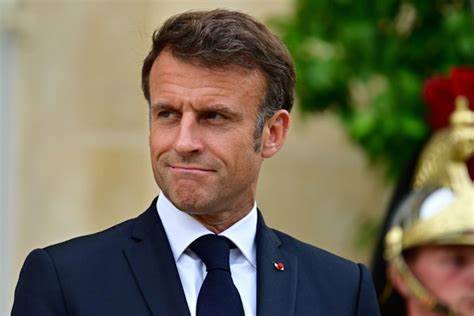The remarks made by French President Emmanuel Macron regarding the role of French troops in the Sahel region have sparked a wave of criticism from African leaders and activists. Macron’s assertion that Sahel nations owe their sovereignty to French military intervention, particularly in the fight against Islamist extremism, has been seen as condescending and dismissive of the complex political and security dynamics in the region.
Leaders from several African nations, including Chad and Senegal, have expressed their dissatisfaction with Macron’s comments. Chad’s Foreign Affairs Minister Abderaman Koulamallah accused Macron of displaying "a contemptuous attitude towards Africa and Africans," particularly in light of the criticism over France’s withdrawal from countries like Mali, Burkina Faso, and Niger. These nations have experienced coups, and the resultant anti-French sentiment has prompted them to distance themselves from French military involvement, often in favor of alternative partnerships, such as those with Russia.
Macron’s insistence that France’s role in the region was crucial for the sovereignty of Sahel nations has been challenged by critics who argue that France's military presence was more self-serving than benevolent. Koulamallah pointed out that despite decades of French involvement in Chad, the country has struggled with civil wars, political instability, and a lack of real development, particularly in terms of military and infrastructural support.
The comments also sparked anger among African activists, such as Togolese writer Farida Bemba Nabourema, who decried the notion that African nations should be "grateful" for French military interventions. Nabourema highlighted the paternalistic nature of Macron’s remarks, viewing them as a form of neo-colonial rhetoric that infantilizes African nations and denies their capacity for self-governance. This view aligns with broader sentiments across the continent that view continued foreign military presence as a form of interference in Africa’s autonomy.
The rise of Russian influence in the Sahel, particularly through the Wagner Group, is seen as a direct challenge to French dominance in the region. Countries like Mali, Niger, and Burkina Faso have increasingly turned to Moscow for military support, marking a shift away from their historical ties with Western powers. This geopolitical shift underscores the growing desire for African countries to seek alternatives to former colonial powers as they assert their independence and explore new international alliances.
Overall, Macron’s comments have sparked a wider debate about France’s role in Africa, the legacy of colonialism, and the shifting alliances on the continent. As African nations pursue sovereignty, security, and development, their relationships with external powers, including France and Russia, are likely to continue evolving. The criticism of Macron's speech signals the growing frustration among African countries with the continued interference of former colonial powers in their affairs.


